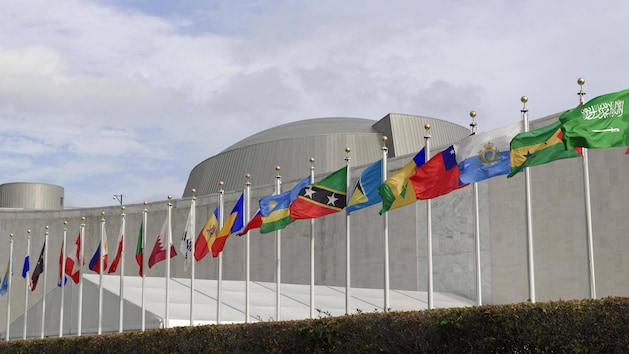The legal system of international law uses a variety of treaties on war and peace to regulate what the relationship between sovereign states should look like and what a state actually is. The definition is based, among other things, on the so-called three-element theory, which the constitutional lawyer Georg Jellinek introduced around 1900.
A state must have three characteristics: It must include a national territory in which a national population lives and state power is exercised – in Germany, for example, from the people with the help of elections and votes, but also through executive bodies of legislation (legislature), jurisprudence (judicial) and executive power (executive).
According to the American political scientist Francis Fukuyama, a state is a political organization that exercises centralized authority over a defined area and its population. Thanks to laws and jurisprudence, order can prevail.
He also describes five characteristics that a state has – in addition to a strong central authority such as a president or monarch, a fixed territory, a complicated form of religion, a controlling police or military force and a certain class system.
If a state primarily fulfills the attributes recognized under international law, this state can exist as long as no one disputes it. It would be helpful if other states also recognized it as such. However, this is not a requirement to exist, but it does offer a certain level of protection as part of a community.
For example, only recognized states can become members of the internationally important United Nations. Anyone striving for recognition can now receive it in the form of de iure recognition or de facto recognition.
A state that meets all criteria and receives full recognition is recognized as de iure, i.e. in accordance with the law or legal. This can no longer be shaken. De facto recognition recognizes the state-like features and confirms a government’s control over an area, but still sees doubts about the legality.
In order to be recognized, from an international law perspective, there must be no doubt, for example, that a state that has been declared sovereign did not achieve this through misconduct or through acts of violence. According to the UN, for example, this violates basic principles of international law.
Through treaties and official declarations, other states can recognize an emerging state or not. Theoretically, this is also irrelevant, since states like Palestine and Israel may not be recognized by all world states, but there is real evidence that both territory, people and state power have come together and declared themselves to exist.
Things become problematic for states that are only de facto recognized, but not only when bloody conflicts develop. In many respects they are viewed as outsiders internationally and are sometimes excluded from financial, diplomatic and other global political interests. This can limit the ability of states to function.
In addition, controversial states ensure that different world states take different sides, which can lead to conflicts on a global scale.















